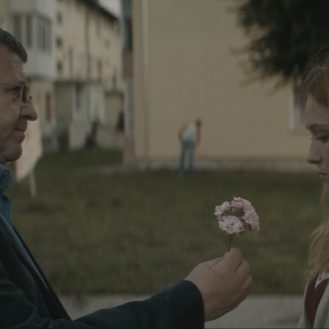By: Jolie Featherstone
Marlowe, Neil Jordan’s adaptation of John Banville’s (a.k.a. Benjamin Black) novel The Black-Eyed Blonde, brings Philip Marlowe (a character created by novelist Raymond Chandler) to life in a sunny noir set in a luscious, pre-WWII Californian town where everyone is trying to climb the ladder of success – no matter the cost.
Marlowe (portrayed by Liam Neeson, in his 100th role) is a stately private investigator, though his eyes tell a story of world-weariness. A veteran, originally from Ireland and now located in California, he exudes a rugged charm but keeps people at a measured distance. When the icily beautiful and wealthy Clare Cavendish (Diane Kruger), daughter of illustrious film star Dorothy Quincannen (Jessica Lange), employs his services to track down a missing lover (who is very much not her husband), Marlowe must dig into the subterranean world of the Bay City elite.
Neil Jordan (who directed one of my favourite films growing up, 2005’s Breakfast on Pluto) brings a solid and classic sensibility to many of the films he’s worked on. It’s no different for Marlowe, giving the film a grounded quality. With Marlowe, Jordan has the unique job of not only adapting a book to screen, but adapting a book wherein the protagonist and story is based off of a fictional character created by an entirely different author and in an entirely different era. You follow?
Philip Marlowe is an iconic character of Chandler’s. He’s a classic hardboiled detective whose foundation originated in the pages of the writer’s short stories. Marlowe makes some changes to Chandler’s original character, but Neeson fills the shoes well – bridging Marlowe’s strong and physically intimidating stature with his philosophical and contemplative nature.
The movie oozes with style. The sensual use of colour and music help make this film a treat to behold. Where the film struggles is clarity. Throughout the film we meet many characters and their relationships to each other seem to be obfuscated by dialogue and scene structure. Of course, a focus on dialogue and shifting allegiances are almost conventions of the Film Noir genre but, in this case, it feels as if they were applied without a steady hand.
Jordan’s film is a loving nod to the hardboiled detective stories of yesteryear. The acting is top-notch and it’s a veritable dessert of colour and style. Lovers of Old Hollywood and classic detective mysteries are sure to enjoy Marlowe.
**********
Do You Tweet? Follow These Tweeple:
Jolie Featherstone: @TOFilmFiles





Be the first to comment